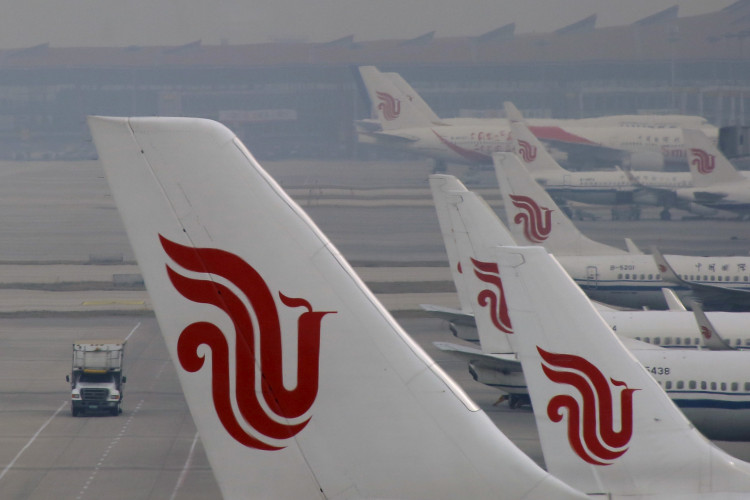On Wednesday, Air China Ltd posted that its annual net profit increased by 1.3 percent. The increase beats analysts forecast after the company gained better passenger yields that have outpaced the impact of the rise in fuel costs and a softer yuan.
The shareholders share in China's flag carrier increased by 1.3 percent compared to last year as it reaches 7.34 billion yuan. Refinitive data said that Analysts' average estimate of the firm's profit is 6.21 billion yuan.
The airline company's report said that its revenue jumped 12.7 percent reaching 136.77 billion yuan in 2018 as the travel demand growth in the world's fastest expanding aviation market increases. The airline's passenger yield increased by 2.9 percent to 0.5461 per revenue passenger after the growth of its passenger capacity by 10.41 percent over the year. the revenue from cargo operations also increased by 11.22 percent.
One factor that affects the revenue of airline companies is fuel costs. Data showed that in surged 35.45 percent reaching 38.48 billion yuan in 2018. Fuel costs attributed to 2.38 billion yuan in foreign exchange losses.
The value of yuan declined by more than 5 percent compared to the United States dollar last year. it heightened the financing costs of airlines. Many companies preferred to purchase planes in the United States dollar-dominated loans.
Recently, Boeing 737 MAX aircraft was grounded in many carriers around the globe including Air China and its rivals like China Eastern Airlines and China Southern Airlines. Analysts are still uncertain on the effects of the flight ban of the Boeing 737 on the airlines' revenue.
According to data from the flight tracking website FlightRadar24, Air China recently grounded 15 of their 737 MAX 8 aircraft. China imposed on its airlines that they need to suspend flights of the plane model on March 11 following the deadly crash of one of the planes in Ethiopia.
Safety concerns over the use of the Boeing 737 MAX increased after the plane model was involved in two plane crashes with 5 months. The first incident killed 189 people after a Lion Air plane crashed in Indonesia last October. Another plane crash incident happened on March 10 involving a Boeing 737 MAX single-aisle plane that killed 157 passengers. The two incidents caused governments to doubt the safety of the planes and caused them to find other remedies including the purchase of planes from other manufacturers.
During the visit of President Xi Jinping in Europe, he signed a deal with Airbus to purchase more than 300 planes from the company.





